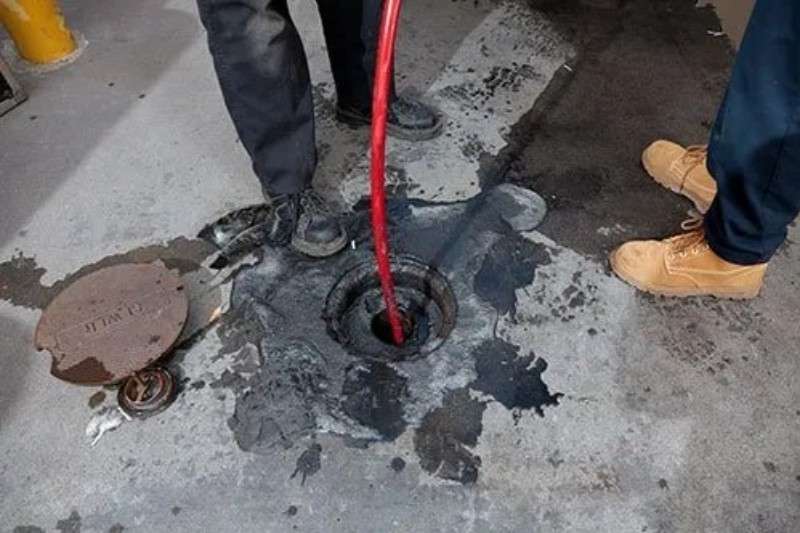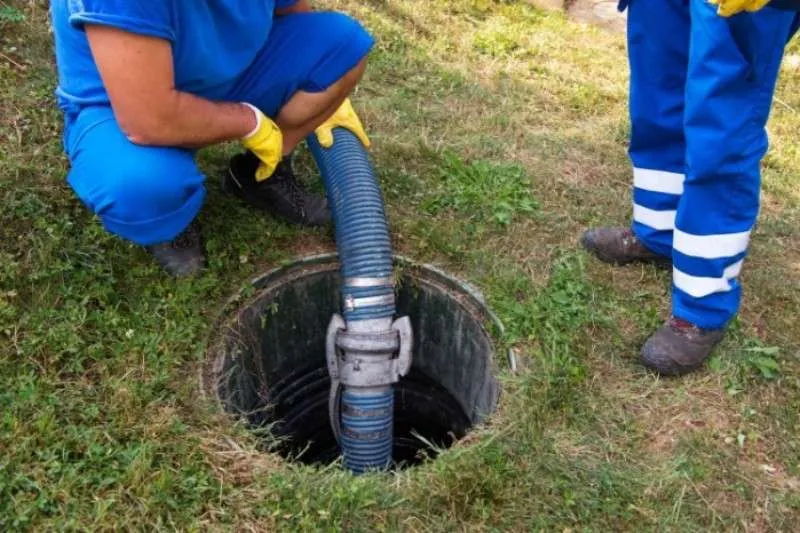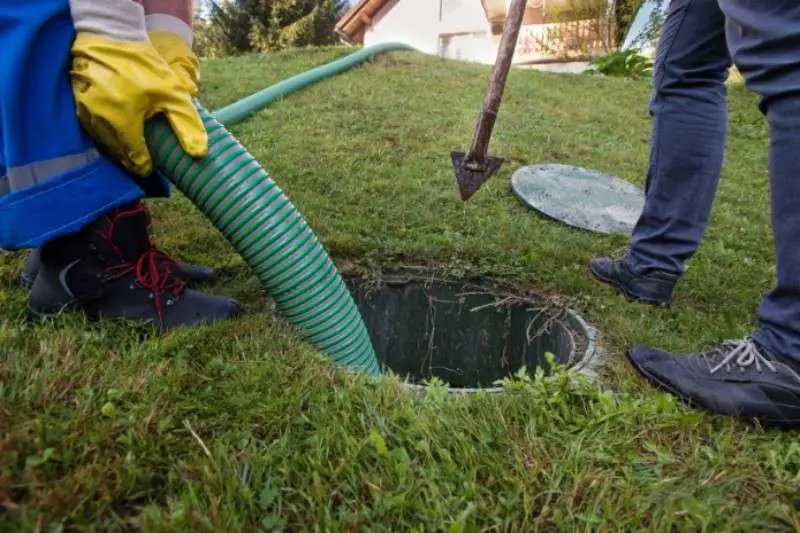Septic systems are an integral part of many homes, providing residents with a responsible way to manage their wastewater management needs. However, it’s important to ensure that your septic system is regularly maintained and cared for to continue functioning properly and effectively for years.
In this blog post, we’ll share essential tips and advice on tips to extend and extending the life of your septic system and ensuring that it adequately services your home’s needs. Read on to learn more about keeping your septic tank in excellent condition.
Introduction to septic system lifespan
Your septic system is an essential part of your home’s plumbing system. It collects wastewater from your house and processes it for safe disposal into the environment. While a well-maintained septic system can last for many years, it is important to understand how to extend its life to prevent costly repairs or replacements down the line.
The average lifespan of a well-maintained septic system is typically between 20 and 30 years, depending on the size and type of septic system works you have. However, with proper care and maintenance, you can extend the life of your septic system beyond this estimate. Keeping your septic system in good condition can help avoid costly repairs and replacements.
Extending the life of your septic system is also beneficial for environmental reasons. By keeping your septic system in good condition, you can reduce the amount of wastewater in landfills or other bodies of water. This helps protect our environment from pollutants and other potentially harmful substances.
By understanding how to extend the life of your septic system, you can help keep your home’s plumbing system working efficiently for years to come. Read on for tips on getting a a business septic system to do just that.
Regular septic system inspections and maintenance
To extend the life of your septic system, it is essential to take preventive measures and be proactive. Regular septic system inspections and maintenance are essential to running your system smoothly and efficiently. Scheduling routine inspections and pumping can help identify potential issues before they become major problems. Additionally, addressing those issues as soon as possible will prevent future costly repairs.
Regularly cleaning your tank is also important, as it will help remove any solid material built up over time. This buildup can clog the lines and cause blockages in the system, leading to costly repairs. Additionally, you should avoid flushing items such as human waste such as paper towels and feminine hygiene products down the toilet – these materials can cause clogs and damage the septic system.
Finally, installing a high-quality filter in your septic system can help reduce the number of solids that make it through to the drainage field, helping to extend its life. This is especially important for households with more people since these systems will be under more strain. In addition, avoid washing greasy or abrasive materials in the dishwasher or laundry to reduce system strain. Taking these steps can help you extend the life of your septic tank and system and save you money in the long run.
Water conservation and efficiency

Water efficiency and conservation can play a key role in helping to extend the life of your septic system. Taking steps to reduce water usage throughout your home is important for conserving natural resources and preserving the health and integrity of your septic system.
Here are some simple tips below for reducing water usage within your household:
- Use low-flow aerators on your faucets and showerheads.
- Install water-saving appliances such as a dishwasher with a Dual Spray Wash System or an Energy Star-rated washing machine.
- Utilize rainwater harvesting systems to collect and store natural rainfall for use in various activities around the home.
- Turn off the water while you’re brushing your teeth or shaving.
- Only run the dishwasher when it is full, and use an eco setting.
- Don’t let the water run when washing dishes by hand. Fill one side of the sink with clean soapy water for washing and the other with clean, rinse water.
- Take shorter showers.
- Repair any leaks in faucets and pipes to stop the wasteful flow of water.
- Install a “greywater” system that can direct used water from washing machines and sinks away from your septic tank so that it won’t overload it.
Taking steps to the water and reducing household water usage can help extend your septic system’s life over time. If you have further questions about how to best care for your septic system, contact a professional today.
Proper waste disposal practices
One of the best ways to extend the life of your septic system is to practice proper waste disposal. This means not overloading your septic system with too much garbage disposal,too much wastewater, not pouring any toxic or hazardous materials into the sink, and being mindful of what you put down the drain. Remember that flushing cat litter, disposable diapers, sanitary wipes, and other non-biodegradable items can overload your septic system.
IIt’salso important to be mindful of what cleaning products you use in your home. Many conventional cleaning products contain harsh chemicals that can break down septic bacteria, so choose septic-safe cleaning products and laundry detergents whenever possible. Also, use septic-safe soaps and detergents when washing dishes, clothes, and other household items.
By taking these proactive steps to extend the life of your septic system, you can avoid costly repairs or replacements down the road. If you have further questions about properly maintaining your septic system, contact a qualified professional for more information.
Caring for your septic system’s drain field
Caring for your septic system’s drain field is essential in extending its life. The drain field, also known as a leach field or leaching bed, is where wastewater from your house exits the septic tank pumped out,, and disperses into the soil. Maintaining proper drainage within this area is important, as standing water can cause damage to the system.
Don’t plant trees with aggressive root systems too close when landscaping around your septic system. Roots from shrubs and trees can penetrate and clog the drain field pipes, causing a backup in the system. Additionally, suppose you are planting grass or other vegetation in this area. In that case, ensure a variety of turf grass will not require too much water, as excess water can also cause damage.
Finally, protect the drain field from vehicle traffic and heavy equipment. It’s important to keep automobiles, lawnmowers, and other machinery away from the drain field to prevent compaction and possible foundation damage. Additionally, if you need to dig in this area, call your local utility locating service before doing so. This will help avoid accidental damage to pipes and other septic system components.
Educating household members on septic system care

One of the most effective ways to extend the life of your septic system is by educating household members on proper septic system care. Teaching family members about septic maintenance and usage and establishing and enforcing household rules for waste disposal can go a long way in preserving the health of your septic system posted and over time.
Encourage family members to be mindful of what is flushed or disposed of in the septic system. Non-biodegradable items such as baby wipes, toilet paper, towels, sanitary pads, and other non-decomposable materials can clog pipes and cause damage to your septic tank.
Helpful tips include avoiding pouring fats, oils, and grease down your septic tanks into the drain. This can create a thick layer of hardened sediment on the bottom of your tank, which can be difficult to remove and may require a professional septic system cleaning service.
Avoid flushing harsh chemicals such as paints, thinners, and oils down the toilet for liquid waste. If these items must be disposed of, contact your local waste management and recycling facility for proper disposal.
FAQs
What is the average lifespan of a septic system?
The average lifespan of a septic system is typically between 25 to 30 years, with proper maintenance and regular inspections. However, the exact time can vary depending on how well you care for it and environmental factors such as terrain and ground permeability.
How can I extend the life of my septic system?
The best way to extend the life of your septic system is by regularly inspecting and maintaining it. This includes having a qualified septic professional inspect your system at least once every three years, pumping out the tank every one to three years, and monitoring water usage levels in your home.
How often should I have my septic system inspected and maintained?
It would be best to have your septic system inspected and maintained by a qualified professional at least once every three years. IIt’salso important to pump out the tank regularly, typically every one to three years. This will help prevent clogs and buildup in the system, ensuring it runs efficiently for longer.
What are some water-saving tips for septic system owners?
Septic system owners can help save water by taking steps such as using low-flow fixtures, such as toilets and shower heads, washing clothes with cold water, and limiting the amount of time spent in the shower. Finally, consider investing in a rainwater collection system for irrigation and other purposes, which can help reduce stress on your septic tank.
How can I protect my septic system’s drain field?
Protecting the drain field is key to extending the life of your septic system. To ensure proper protection, avoid planting trees or shrubs near the area, as their roots can penetrate pipes and cause damage. If possible, choose turf grasses that require minimal water, as excess water can also affect the integrity of your system. Finally, avoid driving or parking on the drain field, as this can cause soil compaction and lead to the filter system and infiltrative surface damage.
Are there any specific waste disposal practices that can extend my septic system’s life?
Yes, there are a few waste disposal practices that you should follow to extend the life of your septic system. It is important to avoid flushing non-biodegradable items such as paper towels, sanitary pads, and baby wipes in your toilet.
Can septic tank additives help extend the life of my septic system?
Septic tank additives can help to break down solids and reduce the need for pumping and tank or drain tests, but they cannot completely replace periodic maintenance. Regular professional inspections, pumping, and necessary repairs should still be done to ensure your system is properly functioning and extending its life.
How can I tell if my septic system is nearing the end of its lifespan?
If your septic system is nearing the end of its lifespan, you may experience signs such as slow-draining toilets or backups into other drains, water pooling on the roof drains on top of the drain field, or bad odors coming from the system. It’s important to have a professional inspect your system regularly and make repairs if necessary.
Conclusion
You now have a broad understanding of how to extend the life of your septic system. These steps are essential to ensuring your septic tank functions correctly and efficiently as you rely on it daily. Methods like limiting food waste, properly disposing of household chemicals, reducing water use and pumps, and regular maintenance with licensed experts can all make a difference in sustaining a working septic system and protecting the environment.


